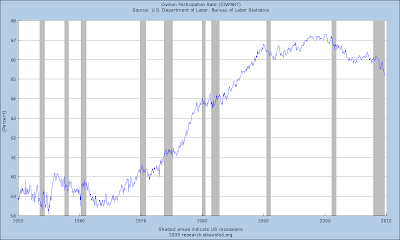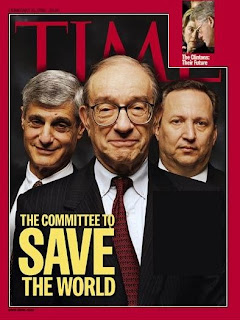What fascinated me about this information is that countries that have much less of the official gold, that is gold held by the governments, are leading the effort to recast the SDR with some gold content in the changes scheduled to take place later this year. And they tend to be the high growth nations with the greatest commitments to exports.
And it was a bit of a surprise to see that the Eurozone exceeds the US in total assets by volume. I did not know that. Of course, one may argue about the qualitative unity of the Eurozone. But the big holders of gold there are clearly the core of the union.
This chart does not address the issue of gold holdings which may be leased out and sold to the private sector but still listed as an asset, but held as hedges, derivatives, and deep storage, that is, claims on ores yet to be extracted and in some cases even discovered.
What is also fascinating, as shown below, is that if one looks at the gross levels of official gold holdings the total was steadily decreasing up until last year.
Since there is an annual increase in total gold from mining activity, and very little loss through industrial use that is not subject to later salvage, it appears that there was a steady transfer from the public to the private sector.
Essentially the private sector has been taking all the new gold production and official sales for an extended period of time. We have to wonder what sparked the spectacular bull run in gold starting around 2001 from about $250 to $1000+ per ounce? I can assure you, the bankers of the world think about this, and frequently.
Since we are denominating gold here in US Dollars, there is an obvious negative correlation of sorts as the dollar moves higher and lower in perceived value by the world. But that does not explain the fact that gold is in a bull market in most of the world currencies except for a few of the commodity exporters and safe havens.
Is gold a bubble? As someone who has been a close observer of bubbles for the past ten years the data does not recommend that conclusion. And what makes me even more curious about this point of view is that the very people who for the most part denied the existence of the obvious bubbles in tech, housing, risk, banking and credit, even to the point of absurdity, who could not or would not see a bubble if it perched on the end of their nose, who are card carrying members of the international monied fraternity, are the most vocal in calling gold a bubble with emotional arguments lacking any fundamental data. What's up with that?
Some people, like Willem Buiter, have recently made silly and distracting arguments regarding their very subjective opinion about gold. That opinion does not bear all that much weight given gold's long history and broad use as a store of value, more enduring than anything else in recorded history. In other words, an opinion is like a vote, and you are casting your one vote in the face of countless votes of millions of people over the span of ages -- so your opinion is worth what it is worth, to you.
It is the supply and demand that interests me. And it surely interests the monied powers, who seem to come out strongly in disfavor of gold and silver at certain intervals when they start getting nervous about the grip they have on the reins of the world's financial markets in paper. The sillier and more baseless their comments, the more my interest.
So you will forgive me for seeming rude, but I do not care about your opinion, whoever you may be. I do not even care for my own opinion. I only care for what can be known.
A good part of me is on the hunt for knowledge here, and whether you believe it yet or not is of little consequence to the outcome. You may as well spin opinions about the likely path of a truck as it bears down upon you where you stand. Only the trajectory and the mass of the truck matters, and the ability to step out of its way in a lively manner.
Given the price action, it is hard to find a more 'popular' commodity as expressed in the action of buying by private individuals with disposable wealth, that at the same time is so seemingly 'unpopular' with public officials, and a genuine antipathy by the world bankers, and so little noted by the general public. The 'gold parties' that people were pointing to as a sign of a top were for companies to BUY gold in the form of old jewelry from the public, not for SELLING it to them and often at preadatory prices, despite the misleading spin from the mainstream media.
I like data anomalies. They are so interesting. As Holmes observed in the story Silver Blaze, "Why didn't the dog bark?"
Gregory of Scotland Yard: "Is there any other point to which you would wish to draw my attention?" Holmes: "To the curious incident of the dog in the night-time." Gregory: "The dog did nothing in the night-time." Holmes: "That was the curious incident."I cannot think of any single economic phenomenon that is more interesting in recent time, say the past 100 years, than the evolution of global trade, the basis for its exchange, and of course the official reserve holdings that are a natural outcome of this. For if one understands that the power to set and control the currency essentially trumps all local fiscal policy issues, there is almost nothing more important than the path which this evolution takes. Valuation and the ownership of the 'standard' of monetary valuation is key, and yet so little remarked, so little discussed in public. I try to resist the temptation to suspicion that statists are driving towards a unified command and control economy. I do not think that this agenda is the basis for formal discussions, except perhaps tangentially in the hallways of Davos. There is an impetus to power, and more power, that can create the same effect in groups of men without the need for formal discussions. Financial engineers and bankers will alway seek more control and more power, because they are seeking to master something that is a portion of human nature, that does not lend itself easily to linear manipulation. As their plans fail, they need to keep expanding to prevent a collapse and their personal humilitation. This is inherent in what they do. This is how dictatorships are created; they seem to be the easier path to inability, if not incompetency. But it is obvious that the theme since the 1980's at least has been the will to power, the knocking down of laws and regulations, to allow the most powerful to do what they will, to take an even greater share of the riches of the world, to the disadvantage of the many. And my hypothesis is that the global reserve currency is a key plank in this agenda. Perhaps this is such a perennial theme that is almost a tautology to remark about it, like a boy who first discovers the wonders of love, and thinks himself a Balboa discovering new oceans. Perhaps this boy is just discovering in a more profound way the deep roots of the darker side of human nature, the basis of evil: pride, greed, and deceit. But there is an ebb and flow in the tides of men, and the rise and fall of nations, ideas, and fundamental values like freedom, justice, honour, duty, mercy, equality, and hope. And we are certainly at the cusp of a trend change, a trend in place since the second Great War, and the dog is not barking. The game is afoot.
































